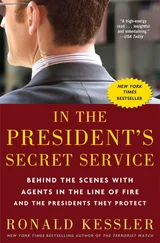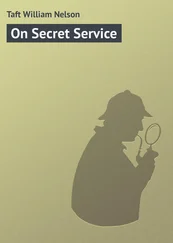William Fitzpatrick - Secret Service Under Pitt
Здесь есть возможность читать онлайн «William Fitzpatrick - Secret Service Under Pitt» — ознакомительный отрывок электронной книги совершенно бесплатно, а после прочтения отрывка купить полную версию. В некоторых случаях можно слушать аудио, скачать через торрент в формате fb2 и присутствует краткое содержание. Жанр: foreign_antique, foreign_prose, на английском языке. Описание произведения, (предисловие) а так же отзывы посетителей доступны на портале библиотеки ЛибКат.
- Название:Secret Service Under Pitt
- Автор:
- Жанр:
- Год:неизвестен
- ISBN:нет данных
- Рейтинг книги:5 / 5. Голосов: 1
-
Избранное:Добавить в избранное
- Отзывы:
-
Ваша оценка:
- 100
- 1
- 2
- 3
- 4
- 5
Secret Service Under Pitt: краткое содержание, описание и аннотация
Предлагаем к чтению аннотацию, описание, краткое содержание или предисловие (зависит от того, что написал сам автор книги «Secret Service Under Pitt»). Если вы не нашли необходимую информацию о книге — напишите в комментариях, мы постараемся отыскать её.
Secret Service Under Pitt — читать онлайн ознакомительный отрывок
Ниже представлен текст книги, разбитый по страницам. Система сохранения места последней прочитанной страницы, позволяет с удобством читать онлайн бесплатно книгу «Secret Service Under Pitt», без необходимости каждый раз заново искать на чём Вы остановились. Поставьте закладку, и сможете в любой момент перейти на страницу, на которой закончили чтение.
Интервал:
Закладка:
How Marsden and the Attorney-General settled the difficulty, no correspondence exists to show; but the London 'Courier' of December 5, 1803, most lucidly reveals the facts: —
On Friday last, Samuel Turner, Esq., barrister-at-law, was brought to the bar of the Court of King's Bench, in custody of the keeper of Kilmainham Prison, under a charge of attainder, passed in the Irish Parliament, as one concerned in the Rebellion of the year 1798; but having shown that he was no way concerned therein, that he had not been in the country for a year and seven months prior to passing that Act — i. e. for thirteen months prior to the rebellion – and therefore could not be the person alluded to, his Majesty's Attorney-General confessed the same, and Mr. Turner was discharged accordingly. 249
The 'Dublin Evening Post' of the day states that Turner's arrest was due simply to his indiscretion in visiting Ireland on business arising from the death of his father. 250But as the 'Post' in 1803 had been subsidised by the Crown, this account was probably meant to mislead. The Castle archives bulge with the brimful letters of its editor, H. B. Code. Turner's committal to Kilmainham was only another act in the great drama, one scene of which Mr. Froude has so powerfully put before us. 'Samuel Turner, Esquire,' of imposing presence and indomitable mien, a veteran in 'the cause,' the man who had challenged the Commander-in-Chief, the envoy to France, the exile of Erin, the friend of Lord Edward and Pamela, the disinherited by his father, the victim of State persecution, now stood before his fellow-prisoners the 'Ecce Homo' of martyrdom, commanding irresistibly their confidence.
Of his detention in Kilmainham Dr. Madden knows nothing; but he mentions that Turner accompanied the State prisoners – nineteen in number – to Fort George in Scotland, the final scene of their captivity. Here Turner's work was so adroitly performed that we find a man of incorruptible integrity suspected instead. Arthur O'Connor told John Patten that Thomas Addis Emmet 'gave information of a letter which O'Connor was writing, through which means Government became acquainted with the circumstance.' A long correspondence on the subject has been published by Madden. Emmet at last challenged O'Connor. Patten, 251the brother-in-law of Emmet, was told to bring a certain pair of duelling pistols to Fort George; but, thanks to the efforts of Robert Emmet to allay the dispute, the weapons were not used. It was Patten's impression that Turner's machinations had set the two friends by the ears. Although O'Connor apologised, and both parties shook hands, it is painful to add that half a century after, when the upright Emmet had been more than twenty years dead, O'Connor, in his book 'Monopoly,' stigmatised him as a man of bad faith. A suspicion more baseless was never uttered. In this book the name of his fellow-prisoner, Turner, is not once mentioned. Indeed, the inference is that he thought well of Turner; for O'Connor, after criticising the Catholic members of the Directory, declares that he had much greater reliance on the Northern chiefs. O'Connor, Emmet, Neilson and others were detained at Fort George until the Peace of Amiens, and then enlarged on condition that they should expatriate themselves for ever. 252
In 1807 Sir Arthur Wellesley, afterwards Duke of Wellington, entered on his duties as Irish Secretary. A letter, dated Dublin Castle, December 5, 1807, and addressed to the Admiralty, recommends a midshipman in the navy, Francis Turner, for promotion. 'He is the son of a Mr. Turner in this country, who has strong claims to the favour of the Government for the loyalty and zeal with which he conducted himself during the rebellion in Ireland.' 253Doubtless the new hand merely wrote in this letter what the permanent officials prompted. 254
Downshire, although a staunch Tory of the old school, uniformly supported the Catholic claims. This example probably influenced his protégé . O'Connell, while inculcating moral force in his struggle for civil and religious liberty, was fond of enlisting in his bodyguard men who in more troubled times had staked their lives and fortunes for Ireland. He had himself been a 'United Irishman,' as will be shown. The rebel General Clony presided as chairman at the Catholic Association. Rowan, Teeling and 'Con' McLoughlin sat at the Council board, or stood on the National platform. What confidence must not O'Connell have reposed in the man who, as will appear, avowed himself ready to die for his chief!
An aged gentleman, Patrick O'Byrne, who was born at Newry, almost under the shadow of Turner's patrimonial gable, but who never once doubted his fidelity to the cause in which O'Byrne himself has been no silent ally, supplies a fact of sufficiently curious import: —
When the Orange ascendancy faction resolved to put O'Connell out of the way [he writes], and their champion, the unfortunate D'Esterre, horsewhip in hand, was ostentatiously parading the streets of Dublin, accompanied by leering friends, to compel O'Connell to fight him, Mr. Samuel Turner took up his position in a hotel where it was known D'Esterre would go to seek O'Connell. He had not been there long before D'Esterre and his staff entered and inquired for O'Connell. Immediately Mr. Turner advanced and stated that his friend Mr. O'Connell was not there, but he – Mr. Turner – was there to represent him. No: they did not want Mr. O'Connell's friend; the Liberator himself was the object of their search. Mr. Turner, with the same spirit that he had challenged Lord Carhampton, now declared that he adopted Mr. O'Connell's words, publicly uttered, and made himself responsible for his actions. In vain; none but O'Connell himself would serve their purpose, and Mr. Turner was denied the opportunity of doing battle for his friend. 255
All this time it cannot be said that, although undiscovered, Turner was still a happy man. The dread spectre of assassination ceased not to haunt him. 'After long experience of the world,' says Junius, 'I affirm before God I never knew a rogue who was not unhappy.' Nor was Turner's presentiment surprising. McSkimmin's History of Carrickfergus, 103-73, in his 'History of Carrickfergus,' states that the pistol and the dagger were no uncommon means of dealing with informers; and he supplies a list of men who thus suffered.
Books which treat of 'Ninety-eight' often mention Byrne of Dundalk. In 1869 the late Mr. John Mathews of that town gathered from Byrne's representative, Mr. P. J. Byrne, Clerk of the Crown, several facts, and, in enclosing them to me, styled his informant 'the highest authority on the unpublished history of the County.' Two days later Mr. Byrne was no more. The inquiries I then made had no reference to Samuel Turner, but some passing notices of this man which occur in the manuscript are useful in now supplying missing links. Mr. Mathews was an ardent patriot, and he described, not without emotion, how Turner died. Regarding him as a rebel true to the end, he writes: —
Turner went to the Isle of Man, and having quarrelled there with a Mr. Boyce, agreed that the dispute should be settled by an appeal to arms. Both, with their friends, repaired to the field of honour, and as Turner was preparing for the struggle his adversary shot him through the head; and [adds Matthews] thus terminated the career of a man whose only regret was that his life was not lost in the service of his country. 256
Was the vengeance wreaked by Boyce meant as a tardy retribution? Was the John Boyce, who with five other prisoners was consigned in 1797 to Carrickfergus Gaol, connected with the Boyce who shot Turner? What Boyce had against Turner was a secret which died with both. No proceedings seem to have been taken against the man by whose hand he fell. And possibly this forbearance was not uninfluenced by the fact that the Crown had need no longer for their informer's services, but, on the contrary, gained by his death. Turner was a clever man, troublesome to deal with, haughty, touchy, and resentful; and, like Maguan, 257Bird and Newell, he might at any moment publicly turn upon his employers and betray them with as little compunction as he had already sold his comrades.
Читать дальшеИнтервал:
Закладка:
Похожие книги на «Secret Service Under Pitt»
Представляем Вашему вниманию похожие книги на «Secret Service Under Pitt» списком для выбора. Мы отобрали схожую по названию и смыслу литературу в надежде предоставить читателям больше вариантов отыскать новые, интересные, ещё непрочитанные произведения.
Обсуждение, отзывы о книге «Secret Service Under Pitt» и просто собственные мнения читателей. Оставьте ваши комментарии, напишите, что Вы думаете о произведении, его смысле или главных героях. Укажите что конкретно понравилось, а что нет, и почему Вы так считаете.












